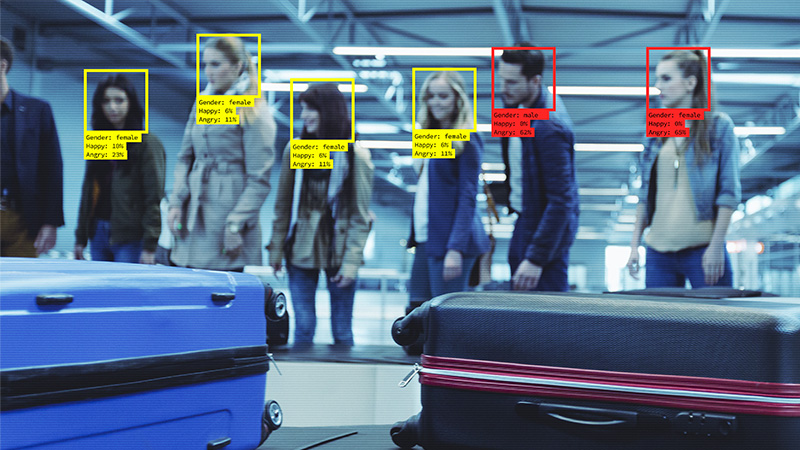A press release said that the law “provides exemptions such as for systems used exclusively for military and defense as well as for research purposes.”
The EU’s European Council has followed the European Parliament (EP) in approving the AI Act – which opponents say is a way for the bloc to legalize biometric mass surveillance.
More than that, the EU is touting the legislation as first of its kind in the world, and seems hopeful it will serve as a standard for AI regulation elsewhere around the globe.
The Council announced the law is “groundbreaking,” taking a “risk-based” approach, meaning that the EU authorities get to grade the level of risk from AI to society and then impose rules of various levels of severity and penalties, including money fines for companies deemed to be infringing the act.
What this “granular” approach to “risk level” looks like is revealed in the fact that what the EU chooses to consider cognitive behavioral manipulation “unacceptable,” while AI use in education and facial recognition is “high risk. “Limited risk” applies to chatbots.
And developers will be under obligation to register in order to have the “risk” assessed before their apps become available to users in the EU.
The AI Act’s ambition, according to the EU, is to promote both the development and uptake, as well as investment in systems that it considers “safe and trustworthy,” targeting both private and public sectors for this type of regulation.
A press release said that the law “provides exemptions such as for systems used exclusively for military and defense as well as for research purposes.”
After the act is formally published, it will within three weeks come into effect across the 27-member countries.
Back in March, when the European Parliament approved the act, one of its members, Patrick Breyer of the German Pirate Party, slammed the preceding trilogue negotiations as “intransparent.”
But what was clear, according to this lawyer and privacy advocate, is that participants from the EP, initially saying they wanted to see a ban on real-time biometric mass surveillance in mass places, did a 180 and in the end agreed to “legitimize” it through AI Act’s provisions.
Breyer said that identification relying on CCTV footage is prone to errors that can have serious consequences – but that “none of these dystopian technologies will be off limits for EU governments” (thanks to the new law).
“As important as it is to regulate AI technology, defending our democracy against being turned into a high-tech surveillance state is not negotiable for us Pirates,” Breyer wrote at the time.


